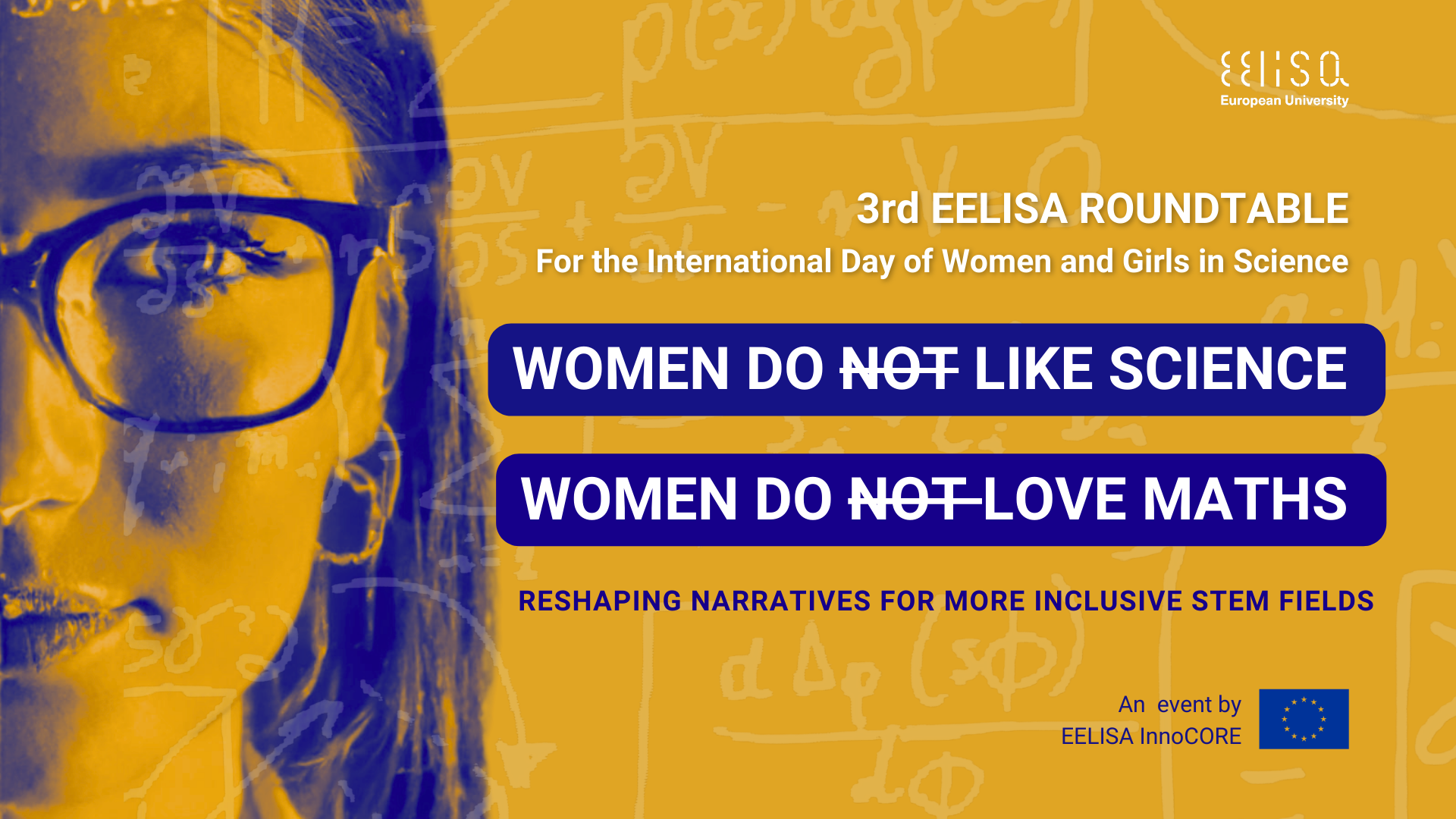
3rd EELISA Roundtable for the International Day of Women and Girls in Science
It is well-known that at certain times in history and in certain cultural contexts, stereotypes suggesting that women are more inclined towards humanistic or artistic disciplines have been perpetuated. While it is crucial to recognize that these perceptions do not reflect the abilities, interests, or choices of all women, it is important to be aware that statistics** can sometimes reinforce these preconceptions.
Narratives about both the historic and current role of women in STEM (Science, Technology, Engineering, and Mathematics) significantly impact our perceptions and understanding of women’s potential involvement in the field. Furthermore, these narratives, especially crucial for younger generations, play a pivotal role in shaping decisions about their engagement in STEM disciplines.
The 3rd EELISA Roundtable for the International Day of Women and Girls in STEM gives the spotlight to individuals and initiatives within the EELISA community who are actively working towards change through the development of fresh narratives. Utilizing diverse formats such as workshops, dissemination actions, conferences, or podcasts, they aim to engage students, academics, and society at large to change the perception of the role of women in science and show a world full of possibilities to future generations. Meet our panelists below!
Check previous roundtables: 1st EELISA Roundtable: “Women Who Make Science Happen” (2022) and the 2nd EELISA Roundtable: “Parenting and STEM in the 21st Century: raising children, giving up science?” (2023)
** According to the latest EELISA data, when looking at the proportion of Ph.D. women graduates per broad field of study (data from 2021), the highest proportion of women is to be found in the fields of Health and welfare (56%) and Arts and humanities (56%) and the lowest in Information and Communication Technologies (21%) and Engineering, manufacturing, and construction (26%). Women represent 33% of EELISA overall academic staff and 29% of EELISA Grade A academicians (grade A = highest level at which research is performed, typically full professors).
WHEN
Friday 9th of February from 9:30 to 11:30 AM (CET)
WHERE
Zoom
FOR WHOM
Everyone!
Meet the moderator
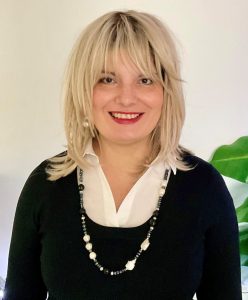
Dr. Magda Luthay, Head of the Office of Equality and Diversity at FAU
Dr. Magda Luthay holds a degree in Middle Eastern Studies and Modern History from Friedrich-Alexander-Universität Erlangen-Nürnberg (FAU) in Germany. Her doctoral thesis deals with the Implementation of the United Nations Convention on the Elimination of all forms of Discrimination against Women (CEDAW) in the United Arab Emirates.
The FAU Office of Equality and Diversity is the central institution for the conceptualisation und implementation of the FAU gender equality and diversity strategy. This includes implementing different strategies at five faculties to increase the number of female academics in research and teaching as well as in academic top positions, especially in the field of STEM. In addition, Magda Luthay has a long-term working experience in the media business as a journalist.
Meet the panelists
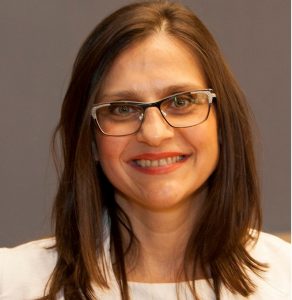
Dr. Edit Cséfalvay studied environmental engineering at Budapest University of Technology and Economics (BME), where she received her PhD degree in the discipline of Bio, Environmental and Chemical Engineering in the field of application of green technologies in process water treatment in 2009. After a year at Eötvös University, she returned to BME. From 2015 on she has been working at the Department of Energy Engineering and become an associate professor in 2017. Her current research activities are sustainable metrics on thermodynamic basis and environmental benign make-up water treatment for power plants.
Dr. Edit Cséfalvay is the  coordinator of “Hungarian Girls Day” as a representative of the Faculty of Mechanical Engineering since 2016.
coordinator of “Hungarian Girls Day” as a representative of the Faculty of Mechanical Engineering since 2016.
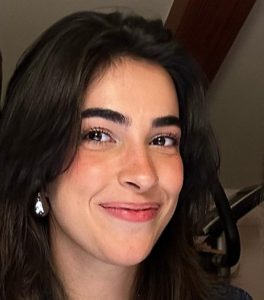 Claudia Rebollo is a student in Materials Engineering at Universidad Politécnica de Madrid (UPM). She is currently in her final year of her degree, while she is also developing her final thesis on the mechanical characterization of healthy cells vs. tumor cells at the Centro Tecnológico de Biomedicina (CTB).
Claudia Rebollo is a student in Materials Engineering at Universidad Politécnica de Madrid (UPM). She is currently in her final year of her degree, while she is also developing her final thesis on the mechanical characterization of healthy cells vs. tumor cells at the Centro Tecnológico de Biomedicina (CTB).
Claudia created and is director of the series of podcasts “Clau, I want to be a (female) engineer”. The initiative seeks to bring young women closer to the experience of other female engineers and to raise awareness about these careers.
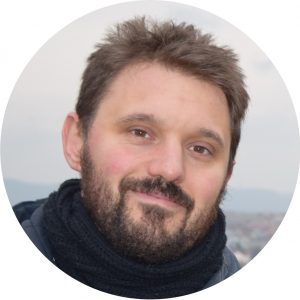 Andrea Vandin is Associate Professor of Computer Science in the Institute of Economics and at L’EMbeDS Department of Excellence at Sant’Anna School for Advanced Studies (SSSA), Adjunct Associate Professor at DTU Technical University of Denmark (where he was previously Assoc. Professor). He got an MSc in Computer Science from the University of Pisa, and a PhD in Computer Science from IMT Lucca. His research concerns mathematical and statistical techniques and tools for the reduction, synthesis, modeling and analysis of complex systems – with applications in the social sciences, biology and engineering.
Andrea Vandin is Associate Professor of Computer Science in the Institute of Economics and at L’EMbeDS Department of Excellence at Sant’Anna School for Advanced Studies (SSSA), Adjunct Associate Professor at DTU Technical University of Denmark (where he was previously Assoc. Professor). He got an MSc in Computer Science from the University of Pisa, and a PhD in Computer Science from IMT Lucca. His research concerns mathematical and statistical techniques and tools for the reduction, synthesis, modeling and analysis of complex systems – with applications in the social sciences, biology and engineering.
Andrea Vandin has been giving a lecture on the fundamental role that two women had in Computer Science: Ada Lovelace, the first ‘computer’ programmer of all times and Grace Hopper, the ‘mother’ of modern programming languages.
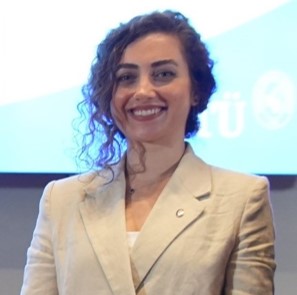
Gül Aydın is a PhD candidate in the History of Science and Technology at Istanbul Technical University (ITU). Her PhD dissertation focuses on the first women engineers of Türkiye and the history of women in science and technology. Gül’s PhD dissertation is supported by the Scientific Research Project Coordination Unit of the Istanbul Technical University. She has BA in Anthropology and MSc in Museology, conducting research on women’s museum. During her MSc studies, she completed an internship at the Museum Frauenkultur Regional International in Nuremberg, Germany.
Gül’s PhD project examines the first women engineers (average borned 1910-1915) of Türkiye who lived in the Early Turkish Republican Era in the context of science, technology, and gender.
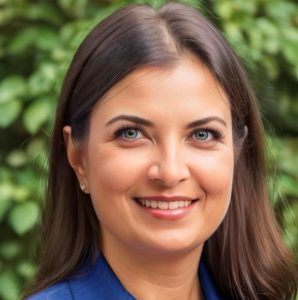
Assoc. Prof. Eng. Olivia Doina Negoita PhD. is an associate professor at the Faculty of Entrepreneurship, Business Engineering and Management at the National University of Science and Technology Politehnica Bucharest (NUSTPB). She seamlessly integrates her wealth of private sector experience into academia. With a background rooted in the dynamic world of entrepreneurship, she once spearheaded her own successful business venture. Driven by a passion for bridging the gap between theory and practice, she transitioned to academia, where she now inspires the next generation of business leaders.
Olivia Doina Negoita coordinated the EduCARE project at NUSTP aiming to support first-year vulnerable female students to complete their engineering studies and get a diploma.
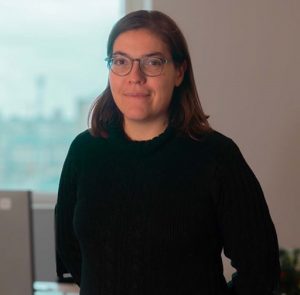
Virginie Ehrlacher is professor in applied mathematics at Ecole des Ponts ParisTech and member of the MATHERIALS INRIA team-project. She is PI of the ERC Starting Grant HighLEAP (“HIgh-dimensional mathematical methods for LargE Agent and Particle systems”). She was awarded the Irène Joliot-Curie Young Woman Scientist prize of the French Academy of Sciences and Technologies in 2023.
Virginie Ehrlacher has participated in several actions to promote mathematics among high school students, including the session “Mathematics, feminine name?” where a theater troupe interprets a theater play inspired by the life of Sophie Germain.
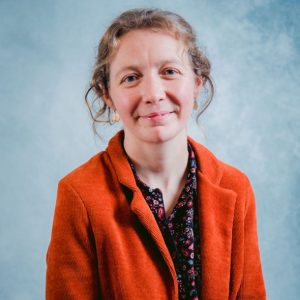
Camille Roger is Deputy Head of International Relations at PSL. After several experiences abroad -in international organization and embassy (Argentina, Indonesia), Camille Roger joint Université PSL in 2021. She is currently Deputy Director for International Relations, with particular responsibility for Europe. She has been very involved in EELISA since she took up her position at PSL, and is PSL’s representative on the Communities Workpackage.
Camiller Roger has contributed to the creation of a MOOC on Women leaders in sciences.
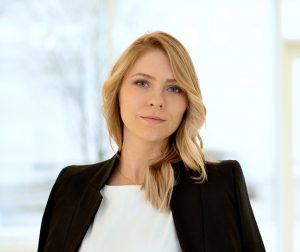 Dr. Stefanie Klostermeier. After completing her studies in Molecular Medicine and Material Science and Engineering at FAU, she started her research in the field of neuroscience. During her master’s thesis at Harvard Medical School, she invented a novel gel to imitate the intricate 3D microenvironment of the human brain, which laid the foundation for her research in Alzheimer’s disease. Her dedication to Alzheimer’s disease research persisted throughout her Ph.D. at the Max Planck Center for Medicine and Physics, where her focus was on understanding the role of biomechanical changes in human brain tissue concerning Alzheimer’s disease. Currently, Stefanie works as a McKinsey Consultant in the Munich office.
Dr. Stefanie Klostermeier. After completing her studies in Molecular Medicine and Material Science and Engineering at FAU, she started her research in the field of neuroscience. During her master’s thesis at Harvard Medical School, she invented a novel gel to imitate the intricate 3D microenvironment of the human brain, which laid the foundation for her research in Alzheimer’s disease. Her dedication to Alzheimer’s disease research persisted throughout her Ph.D. at the Max Planck Center for Medicine and Physics, where her focus was on understanding the role of biomechanical changes in human brain tissue concerning Alzheimer’s disease. Currently, Stefanie works as a McKinsey Consultant in the Munich office.
Stefanie has been featured in FAU’s successful publication ‘The Sky is the limit’ showcasing the career of STEM female scientists.
![]() EELISA-InnoCORE has received funding from the European Union’s Horizon 2020 R & I programme under GA No. 101035811
EELISA-InnoCORE has received funding from the European Union’s Horizon 2020 R & I programme under GA No. 101035811
